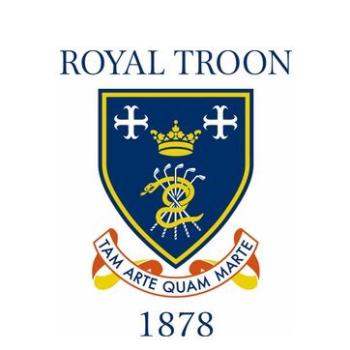Part 1
Samuel Ryder was born in 1858 in Walton-le-Dale near Preston, England. He was the fourth of eight children. His father had a nursery business. Sam was educated at Manchester University to become a school teacher, but ill-health prevented him from graduating. So, he began work for his father. But Sam grew discontented because he couldn’t convince his father of his ideas on how to grow the family business. Sam therefore moved to London, worked for a rival seed merchant, got married, and had two daughters.
In 1895, Sam Ryder moved his young family to St. Albans, England. There he began his own mail-order seed business so that gardeners would no longer have to buy their seeds in bulk. He sold his seeds in “penny packets” to gardeners. It had been tried before by two companies, but Sam offered his seed packets at much lower prices. With excellent rail access, Sam sent out catalogs and sold his seed packets through the postal service. By 1905, he employed 100 people who were filling 2,000 orders per day.
Also in 1905, Samuel Ryder was elected mayor of St. Albans. It was partly because he had become known as a Good Samaritan. He constantly helped people, donated money generously to charities, and overall contributed to his community. The Wikipedia article on Samuel Ryder has this following paragraph entitled “Church involvement:”
“Ryder was a committed Christian. He had been a Sunday school teacher in Sale in his youth, and became president of the Mid-Hertfordshire Sunday School Union in 1911. He joined the Independent Chapel in Spicer Street in 1895, the only Congregational Church in St Albans at that time. He assisted the minister, Rev. William Carson, to persuade the church deacons to build a new and larger Congregational church building – Trinity – on the corner of Beaconsfield Road and Victoria Street. When the new church opened on 8 October 1903, there was a civic procession and service at the church. Despite this, there was a significant divide between the Anglicans (Church of England and the Non-Conformists, which was accentuated in St Albans – adherents of each denomination would not trade with the other. Ryder was a Deacon at Trinity Congregational Church (now Trinity United Reformed Church) until he resigned in 1922.”[1]
In 1908, at age 50, Sam Ryder had a health issue that resulted in a slow recovery. His doctor had recommended outdoor exercise. His friend and next pastor of Trinity Church knew this and suggested to Sam that he play golf to improve his health. Initially, Ryder had some disdain for golf, preferring to play cricket. But the Reverend Frank Walker, a golfer himself, convinced Sam to go with him to the local golf course. They both hit a few balls on the practice range, and Sam immediately fell in love with the game. He then hired his own swing instructor and outstanding pro player, Abe Mitchell. Six days per week, Sam practiced what he was taught. Being a traditional Sabbatarian Christian, he would not play golf on Sundays. In one year, he got down to a six handicap. The next year, he was made captain of his golf club.
Also in 1908, Samuel Ryder got several church ministers together to play a round of golf. It became an annual affair which continues today, over a century later. And for that first event, Sam had a silver cup made. It is still called the Ryder Trophy. This one-day event is named the Free Church Ministers of Golf Society. Only ordained ministers may participate in it.
One of the two golf clubs where Sam Ryder was a member was Verulam Golf Club, which claims to be the “Home of the Ryder Cup.” The golf course was built in 1905 as a 9-hole course that was first owned by the Earl of Verulam. Later, additional property was purchased and the famous pro player and golf course architect, James Braid, was hired to expand it into an 18-hole course. (Braid won the British Open five times, superceded only by Harry Vardon’s six wins.) The renewed course was reopened in 1927 by staging an 18-hole match between James Braid and Harry Vardon, who won shooting a 74. (The most common grip in golf to this day—the Vardon grip—was named after this Harry Vardon.) At that time, Sam Ryder was captain of the Verulam Golf Club.
In 1921, a few days prior to the British Open Championship a golf competition was waged at Gleneagles, Scotland, between British professionals and American professionals. But its purpose was simply to help attract more American pros to come across the pond and play in the British Open.
[1] http://en.wikipedia.org/wiki/Samuel_Ryder. Accessed January 28, 2013.












